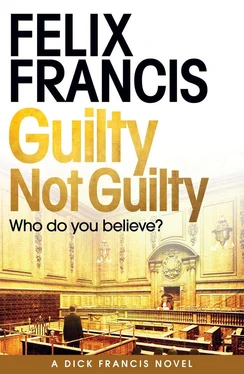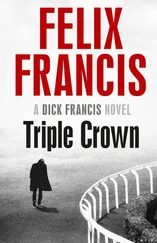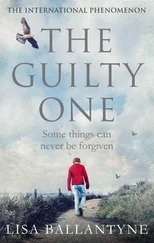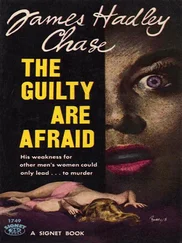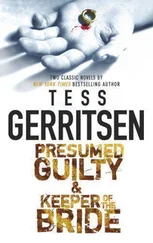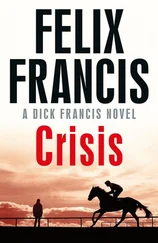Somehow, I had not inherited from our father the ‘tall’ gene like my older six-foot-plus siblings but, overall, this omission to my genetic code had served me well. Not only had it helped make me the undisputed castle hide-and-seek champion but, in my twenties, it had enabled me to fulfil my ambition of becoming an amateur jockey.
There had been a period of about eight years when my whole life had been determined by the date and venue of the amateur steeplechase races around the country. Saturdays and Sundays were fine but taking my annual leave as midweek days off work to ride half a ton of racehorse at thirty miles an hour over huge jumps without a seatbelt was not my boss’s idea of a sensible way to behave, especially since, as he often pointed out, my day job was to calculate the risks to other people’s lives, not to totally disregard those to my own.
Nevertheless, he regularly released me to go to the big events like the Foxhunter Steeplechases at Aintree and Cheltenham, and he even seemed pleased one year when I won one of them. And he didn’t seem to mind too much when I had turned up on Monday mornings with a bruised and battered body after things had not gone quite as planned on the track.
And it had been an injury rather than the pressure of work that had caused me to hang up my riding boots permanently. A horse I’d been on fell at the open ditch on the far side of Sandown Park in the early December of my thirtieth year. The fall itself had been easy enough but another horse behind had kicked me as he landed and had fractured two of the cervical vertebrae at the base of my neck.
The surgeon who had operated informed me in no uncertain terms that a severe weakness now existed and another similar incident would probably result in me being paralysed from the shoulders down, that was if I lived at all.
I had quickly done the maths and concluded that the gain-to-loss ratio was insufficient. Indeed, it was a no-brainer.
I’d had a good run and had been contemplating my retirement from the saddle anyway, so it simply accelerated my decision, something that Amelia had been absolutely delighted about. As she had often said, she was fed up of picking up the pieces from whichever hospital I ended up in.
And as one racing door closed, another magically opened when I was invited to attend an honorary stewards’ training day.
I’d been on the stewards list now for five years and I greatly valued my continuing involvement in the sport.
But neither the race riding nor the stewarding paid the bills. That was the role of my job as an actuary.
I had joined Forehanded Life Ltd, one of the large London insurance companies, direct from Cambridge after their chairman had come to the university to give a careers talk to the third-year mathematics students. The firm had then sponsored me through a postgraduate master’s degree in Business Analytics at Imperial College, after which I entered their actuarial department as an eager young buck aged just twenty-two.
Four more years of study on the job had led to a fully fledged qualification from the Institute and Faculty of Actuaries and a promotion into a new team within the same firm.
‘Your job is simply to predict the future,’ my new boss told me in all seriousness.
‘If I could do that,’ I said, smiling, ‘I’d have won the lottery by now.’
He laughed. ‘You just have, by passing your exams.’
And, in a way, he was right.
On days when I wasn’t race riding, I had looked forward to going to work and being thrust into a world of probability and statistical analysis, financial planning and risk management — crunching numbers on a computer and then explaining my conclusions in simple terms to those who needed to know.
I absolutely loved it.
Insurance is all about spreading risk and we all use it on a daily basis, whether to insure our houses, our cars or our lives, to say nothing of our pensions and investments.
My job was to study data from the past and the present for such things as the economy, interest rates and inflation, and to combine that with my judgement and experience to foresee what was likely to happen ahead, and hence to determine the premiums for life policies, or the contributions needed for a certain level of retirement income.
If I got it right, everyone was happy and the company was profitable. But if I got it wrong then we might not have enough reserves to pay out our claims, or provide the level of pensions that we’d promised.
And then I would get fired.
Fortunately, that hadn’t occurred and I had steadily climbed up the greasy pole of the corporate structure.
That was until Amelia had become unwell.
She and I had first met at one of the regular dinners held in London for Cambridge alumni. The seating plan had us placed next to each other and we’d hit it off immediately.
She was an art historian and was working as a curator in the historic royal palaces, maintaining the fabric not so much of the buildings themselves but of their contents — paintings, furniture and tapestries mostly, with the occasional sculpture or antique timepiece thrown in for good measure.
At the end of the evening, we had swapped numbers and within a week we were an ‘item’, spending as much time together as our busy schedules would allow. Six months later she moved in to my flat in Harlesden and we started looking for a house to buy together in Wimbledon.
We were married on her twenty-seventh birthday in the private chapel of my father’s castle and I’d never been so happy, before or since.
The first years of our married life were blissful other than the fact that Amelia was failing to become pregnant as we had hoped and tried for. While most of her girlfriends seemed to be dropping babies left, right and centre, my wife was becoming more and more stressed by her own inability to conceive, all the more so when the doctors couldn’t identify the reason. ‘Maybe it’s an abnormality with your ovaries,’ they said, shaking their heads. So we had tried using donated eggs. They had fertilised happily in a petri dish but had failed to convert to a full-blown pregnancy.
The situation was not aided by her mother, who kept going on at her about wanting grandchildren, while totally failing to grasp the fact that we were trying our best to do just that.
Amelia became obsessed that I would leave her for someone more fertile, someone who could bear me children. I tried to reassure her that I wouldn’t but she didn’t really believe me.
The issue affected her work, which began to suffer from inattention and carelessness, neither particularly helpful attributes when you were dealing with the nation’s priceless treasures, and she started coming home every night in tears. In the end she had no option but to resign from her job before she was dismissed.
That made her deeply unhappy, so I decided we needed a complete change of scenery, a change of life.
We went house-hunting and fell in love with a Grade II listed converted blacksmith’s workshop in the tiny village of Hanwell, a few miles north of Banbury in Oxfordshire. It meant my journey to my London office was much longer but it was all worth it as Amelia threw herself into village life and seemed so much happier.
We were welcomed by the locals, not least because Amelia was immediately drafted in to help with the cleaning and flower arranging in the parish church, parts of which dated back to the twelfth century, as well as arranging coffee mornings in the village hall and becoming a major help at HanFEST, the annual food and farming festival.
Life for us returned pretty much to normal and the lack-of-baby thing faded into the background as we were accepted for who we were, not for whom we might become.
But then her stupid brother waded in with his size-twelve boots and abusive emails, upsetting her again badly and pushing her into full-blown clinical depression.
Читать дальше
